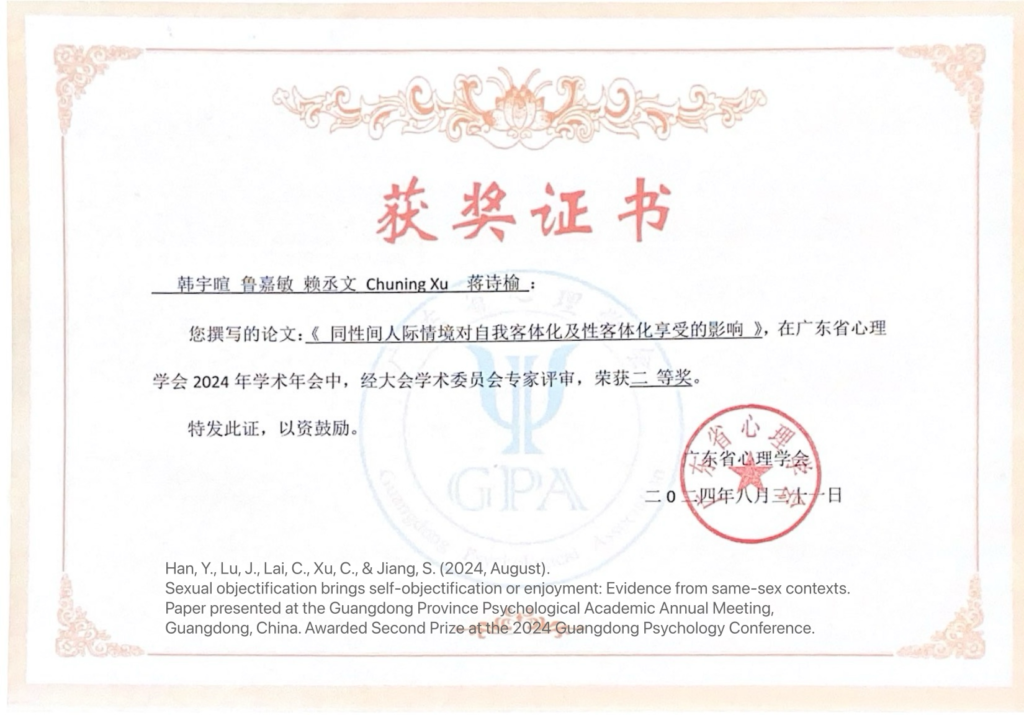
Exploring Gender, Sexual Objectification, and Enjoyment in Same-Sex Contexts
During my time as a research assistant for Professor Shiyu Jiang at Xi’an Jiaotong-Liverpool University, I had the opportunity to engage deeply in a project exploring the complex relationship between sexual objectification, self-objectification, and enjoyment within same-sex contexts. This experience was both intellectually enriching and personally transformative, expanding my understanding of gender, sexuality, and the psychological dynamics that shape these issues.
The project, titled “Sexual Objectification Brings Self-Objectification or Enjoyment?—Evidence from Same-Sex Contexts,” challenged me to examine how sexual objectification operates in non-heteronormative contexts. I contributed significantly to the development of the research, starting with a thorough literature review that allowed me to frame the research questions and develop specific hypotheses. This phase deepened my understanding of existing theories, particularly those related to objectification theory, and provided insight into how sexual objectification might function differently across diverse contexts.
One of the most rewarding aspects of this project was the opportunity to design and implement a comprehensive study. I worked closely with the research team to adapt qualitative measures and craft questionnaires that would ensure we collected rich, reliable data.
Once the data was collected, I analyzed it using SPSS and JASP, honing my skills in data analysis and statistical methods. Through this hands-on experience, I not only became more proficient in these tools but also learned how to interpret complex data and draw meaningful conclusions. One of the highlights of my work was co-authoring the paper “Sexual Objectification Brings Self-Objectification or Enjoyment?” which was awarded Second Prize at the 2024 Guangdong Psychology Conference.

Key Findings:
- Gender Differences: Women showed greater self-objectification and varied enjoyment of sexualization based on comment positivity and context, while men’s self-objectification remained stable across conditions.
- Positive Comments: Both genders enjoyed sexualization more with positive comments, especially in stranger, colleague, or friend contexts. Women found appearance-related comments more enjoyable than sexual-body comments, particularly in the colleague context.
- Intimacy and Context: Women reported lower self-objectification and higher enjoyment of sexualization in the friend context when receiving positive comments, supporting intimacy theory, which suggests that objectification from close relationships has less psychological impact.
In addition to the technical and methodological skills I developed, this project also deepened my understanding of the social and psychological implications of sexual objectification. It became clear that sexual objectification does not always lead to negative outcomes such as self-objectification, as traditional theories often suggest. Instead, in some contexts, it may be associated with positive emotions like enjoyment of sexualization, highlighting the need for a more nuanced perspective on this issue.